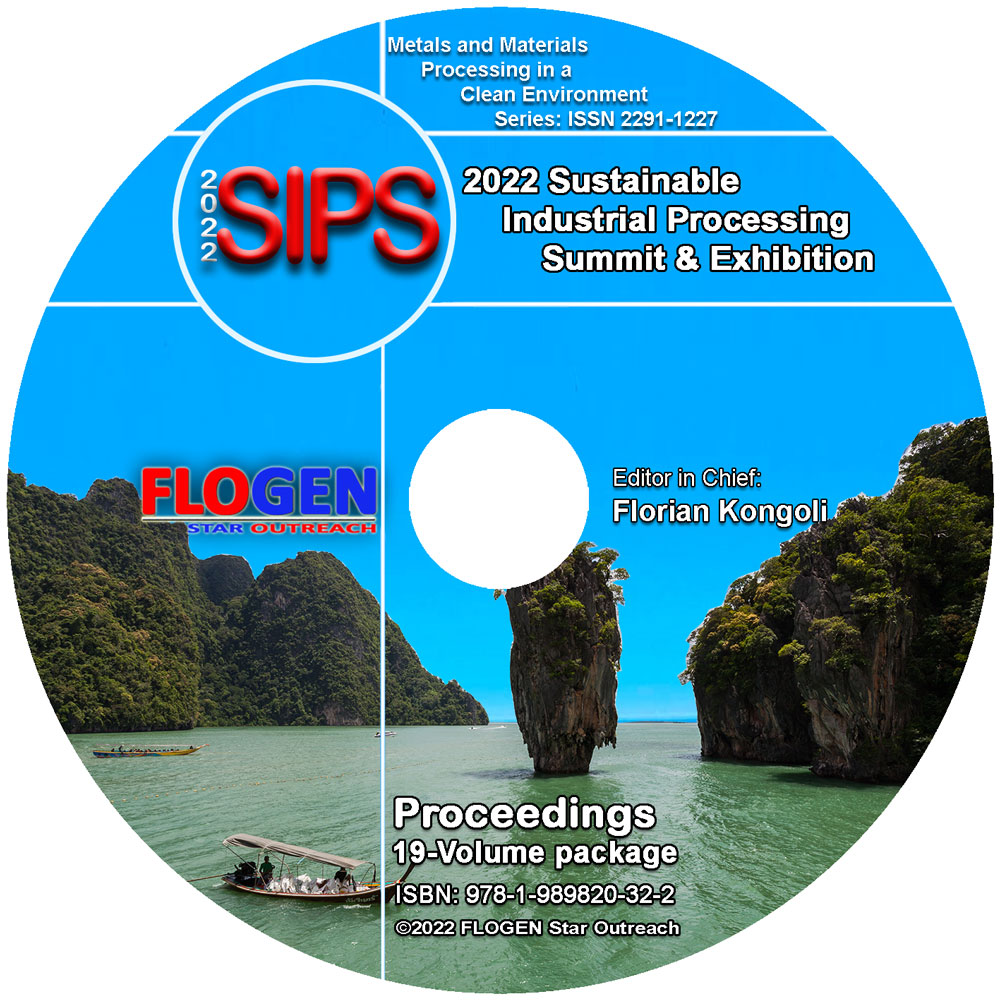2022-Sustainable Industrial Processing Summit
SIPS2022 Volume 8 Mauntz Intl. Symp. Energy Production
| Editors: | F. Kongoli, H. Dodds, S. Atnaw, T. Turna. |
| Publisher: | Flogen Star OUTREACH |
| Publication Year: | 2022 |
| Pages: | 266 pages |
| ISBN: | 978-1-989820-48-3(CD) |
| ISSN: | 2291-1227 (Metals and Materials Processing in a Clean Environment Series) |

CD shopping page
NUCLEAR POWER SATISFIES FLOGEN SUSTAINABILITY FRAMEWORK
Florian Kongoli1; Alexander Montanaro2;1FLOGEN TECHNOLOGIES, Mont-Royal, Canada; 2FLOGEN TECHNOLOGIES INC, Montreal, Canada;
Type of Paper: Regular
Id Paper: 562
Topic: 17
Abstract:
The following paper discusses the potential for nuclear power to satisfy the Flogen Sustainability Framework (FSF). The FSF focuses on three main criteria: environmental protection, economic development, and social development. Nuclear power can satisfy all three criteria simultaneously. Environmental protection is achieved by providing carbon-free energy. This is analyzed by using Germany’s nuclear phase-out as a case study and comparing the relative differences in their cumulative carbon emissions between the years 2000 to 2018. Economic development can be achieved when nuclear is given an even playing field, where fossil fuels are not subsidized. France has deployed an entire fleet of reactors and achieved one of the lowest electricity prices and lowest carbon footprint per capita among European nations. Furthermore, analyses of levelized cost of electricity (LCOE) in the United States has shown that nuclear power can be competitive with other alternative energy sources. Thirdly, the aggregated social costs of not maintaining or deploying more nuclear reactors can be enormous. In the aftermath of the Fukushima incident, the deaths caused by rising electricity prices due to imported fossil fuels were higher than the deaths from the disaster itself. Moreover, there are millions of deaths and labor-days lost due to fossil fuel induced air pollution every year. This puts a heavy cost on productivity, as well as on the healthcare systems of individual nations. Lastly, the issue of nuclear waste is addressed by exploring possible solutions with current technology through reduction, recycling, and storage.